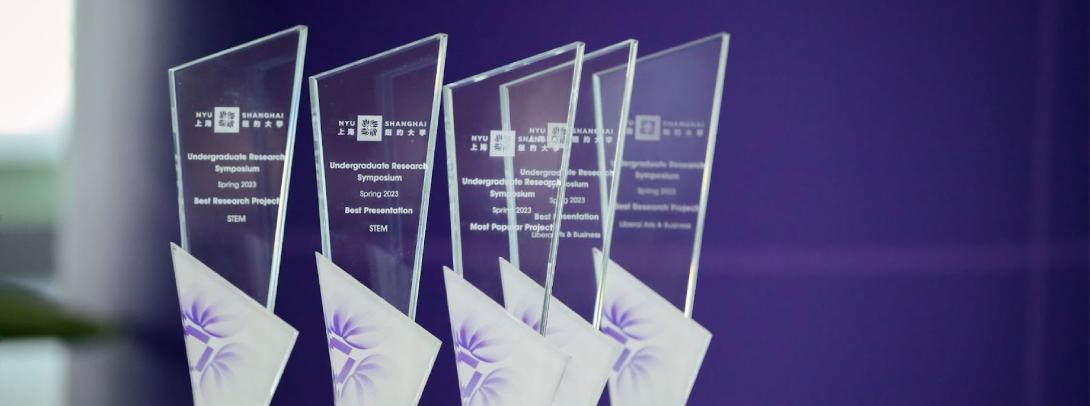NYU Shanghai concluded its first semester at its New Bund campus with the 2023 Spring Undergraduate Research Symposium, hosted by Academic Affairs. This symposium features original student presentations detailing their research work completed over the course of the semester under the mentorship of faculty members.
Students presented under the categories of Liberal Arts & Business and STEM, and their projects included Capstone projects, Deans’ Undergraduate Research Fund (DURF) projects, independent research projects, and works by honors students.
Dean of Arts and Sciences Maria Montoya said the symposium really allows students to flourish and take the role of teacher. “They learn from their professor, they do their own research, and they have to take those two things and combine them and tell us something new—something that is unique and innovative,” she said.
Associate Dean of Arts and Sciences Olivier Marin emphasized that the symposium per semester shows that undergraduate students equipped with the right motivation, tools, and data have the capacity to work on meaningful research. “It doesn't need to be groundbreaking—that's not the point of research,” he said. “The point is to work together as a scientific community and create new knowledge.”
Below, learn more about the experiences and research projects of our awardees:
Liberal Arts & Business
Best Presentation
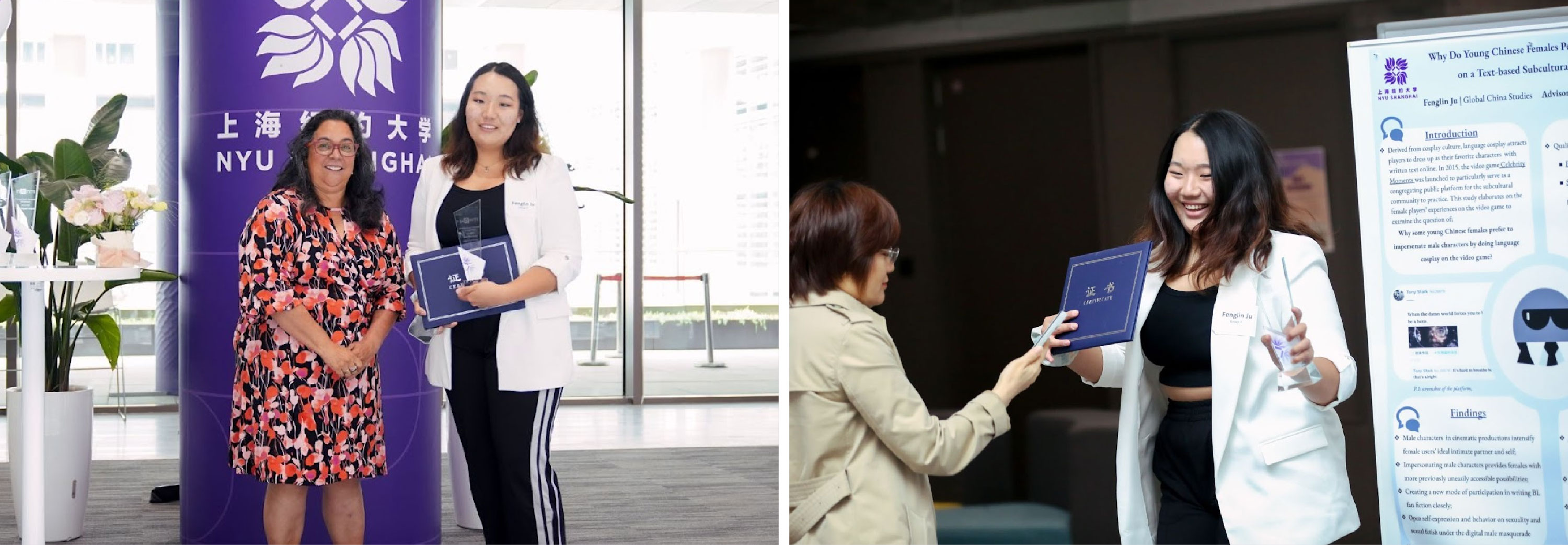
Why Do Young Chinese Females Perform Male Identity on a Text-Based Subcultural Video Game?
By: Ju Fenglin ’24
Area: Global China Studies
Mentor: Assistant Professor of Global China Studies Benson Zhou Zhiqiu
What was it like working with your mentor?
Professor Zhou was pretty busy since he had two classes to teach, but he was still willing to share his office hours—even off-work time—to discuss every problem I had. Because I studied away at NYU Abu Dhabi, we could only meet online, but he was always patient with instructing me. He was sharp at finding critical points, as I was a kind of layman of media studies, and this broadened my view of conducting a media-related project.
Did you face any unexpected challenges?
My biggest concern was designing a satisfying poster to describe my qualitative research and encompassing over ten pages worth of essential information into a three-minute presentation—it was a struggle. I did a mock presentation for my friends and family, a mix of people who knew or didn't know about my topic, to check whether I made myself clear. I received a lot of helpful suggestions.
Any advice to future student researchers?
I strongly encourage future student researchers to trust and rely on yourself. Have clear guidelines. Even if others don't stand by you, you can confidently overcome problems. Remember that research is a process rather than just a result. Preparing how to present it is also a part of the research.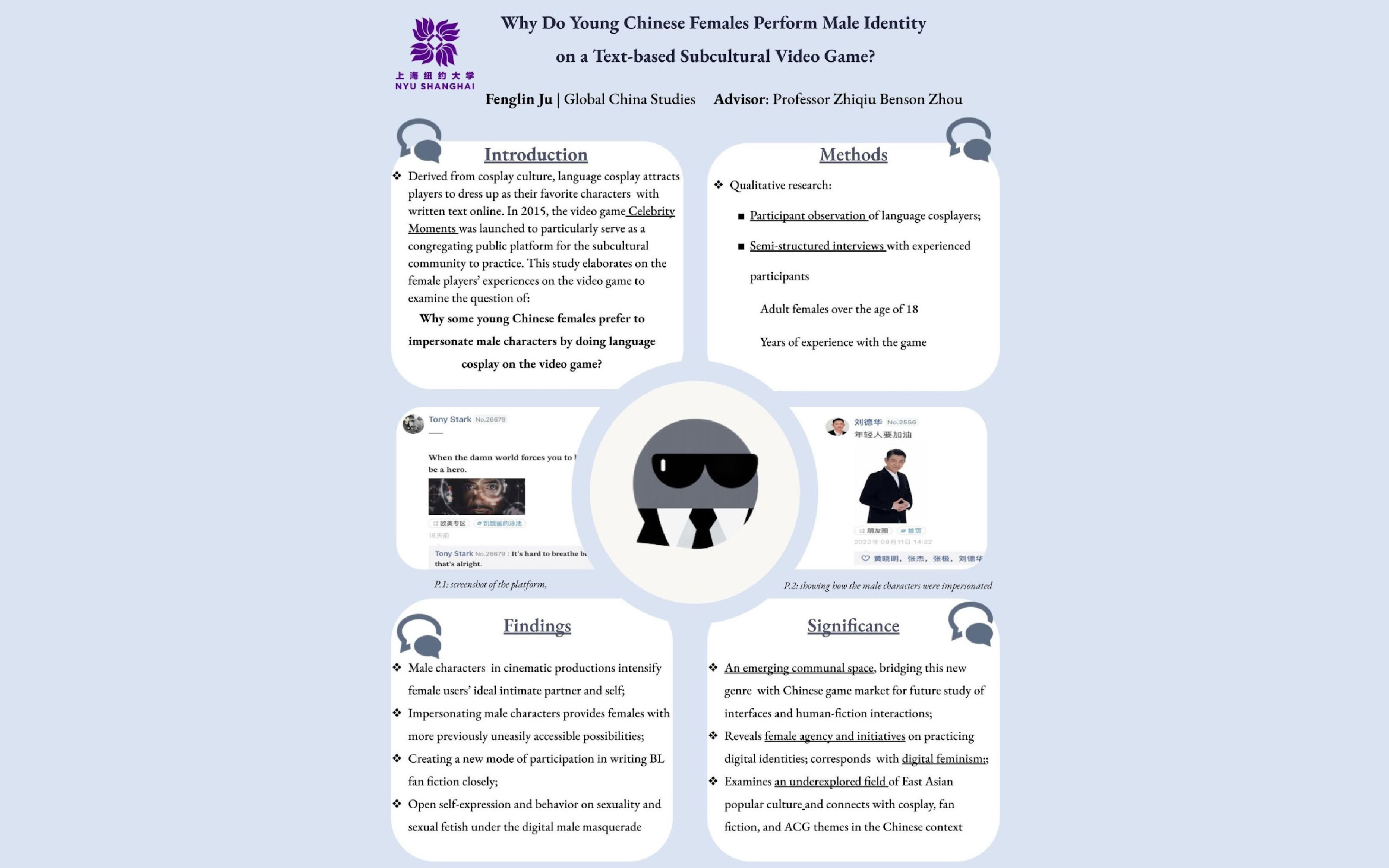
Best Research Project
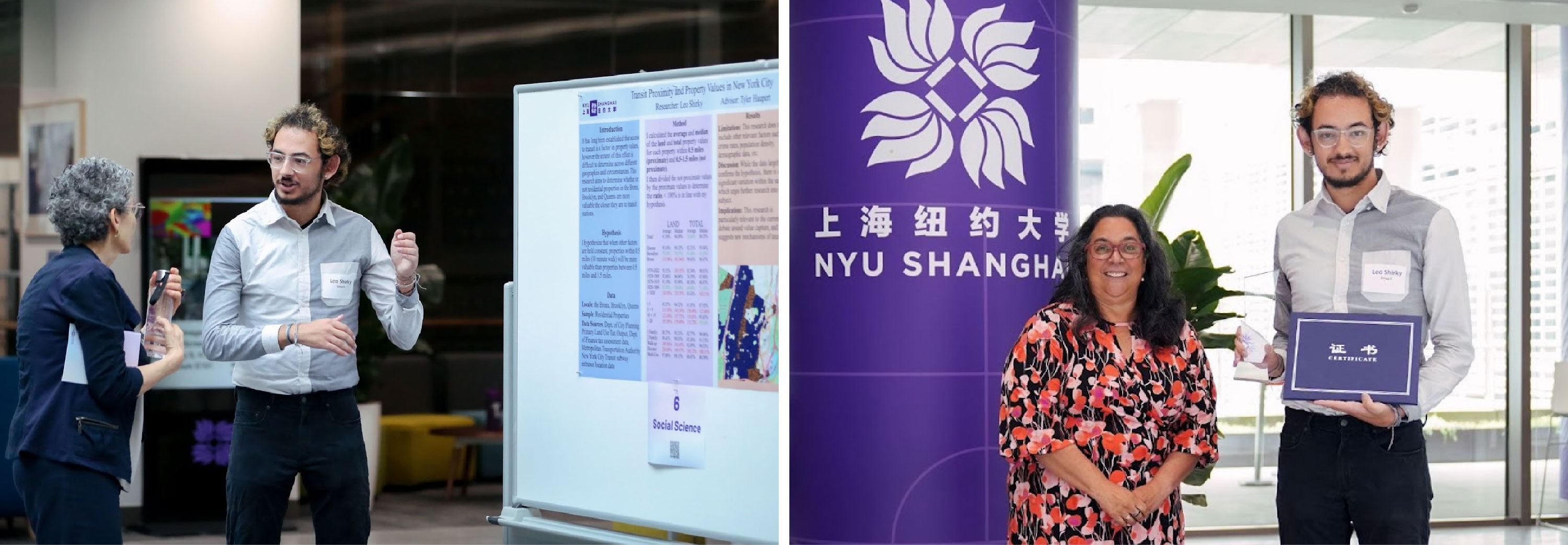
Transit Proximity and Property Values in New York City
By: Leo Shirky ’23
Area: Social Science
Mentor: Assistant Professor of Urban Studies Tyler Haupert
Tell us about your research.
I looked at the relation between access to transit in New York City and the property values of residential properties in Brooklyn, The Bronx, and Queens—the three outer boroughs of New York City. I hypothesized that when you're close to transit, the property would be more valuable than when you're further from transit, but I found that in the actual data, depending on certain building characteristics, such as building age or number of stories, or whether or not your building has an elevator, the effect might be the opposite, and it might be more valuable when you're further away from transit. Ultimately I found that it's a very complicated issue and further research should be forthcoming.
What useful skills have you gained from this project?
Knowledge of the skills that I've practiced with this project is often required for a lot of the jobs that I've looked at so far, so being able to handle large data sets on Excel, being able to use geographic information systems in my particular field—those are very valuable skills. With a project like this that lasts all semester but has a hard deadline, time management is also a very valuable skill I’ve learned. I needed to know how long the research would take, how long the writing would take, and how long the data analysis would take. Practicing those skills, especially on a project that I’m interested in, was a very rewarding experience.
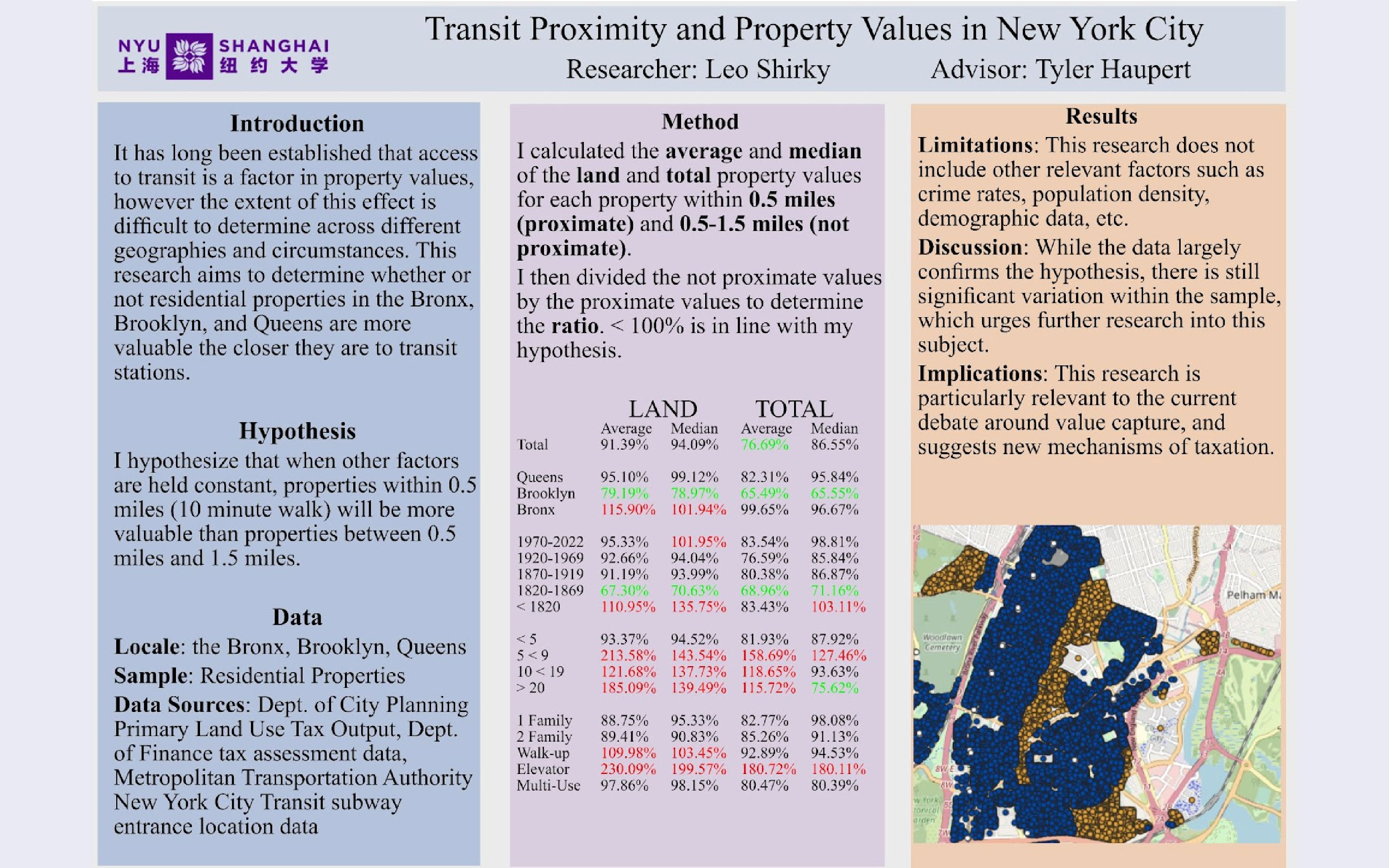
STEM
Best Research Project
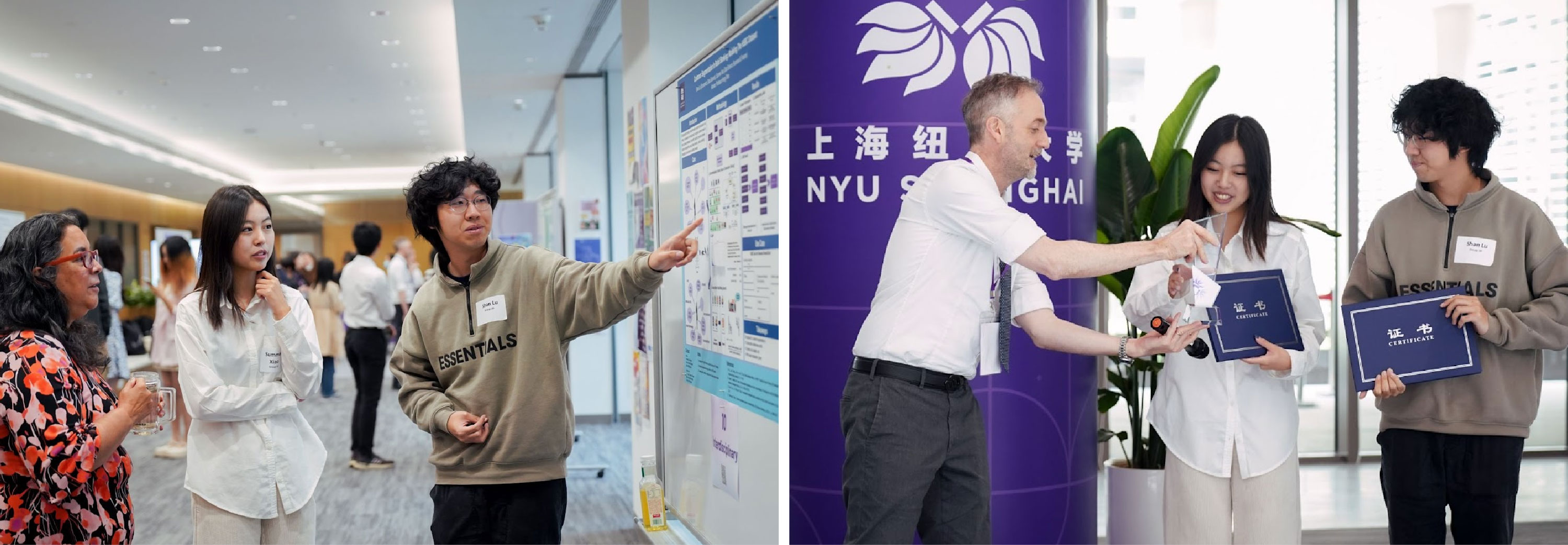
Customer Segmentation In Retail Banking: Modeling the HSBC Dataset
By: Summer Xiao Yuening ’23 and Lu Shan ’23
Area: Interdisciplinary
Mentor: Assistant Professor Faculty Fellow of Computer Science Wen Hongyi
What was it like working with your mentor?
Summer: Professor Wen was a very patient and active listener and was more than willing to answer our questions, provide timely feedback, and help us find solutions on our own. He gave us much freedom to conduct our own plan and guided us well throughout.
Did you face any unexpected challenges?
Shan: Our solution proved to be quite expensive, and none of our devices were capable of efficiently running the experiment. After putting in several all-nighters at the Windows Lab, we were fortunate enough to gain last-minute access to the High Performance Computing (HPC) resources at NYU Shanghai, allowing us to meet the deadline just in time.
Any advice to future student researchers?
Summer: Have confidence and faith in what you are doing. Regard doing research as a journey, not a task to do.
Shan: Exploration lies at the heart of research, so don't panic when you find yourself wandering and making no apparent progress. It can be rewarding in the end to have occasionally changed directions and incorporated seemingly unrelated studies.
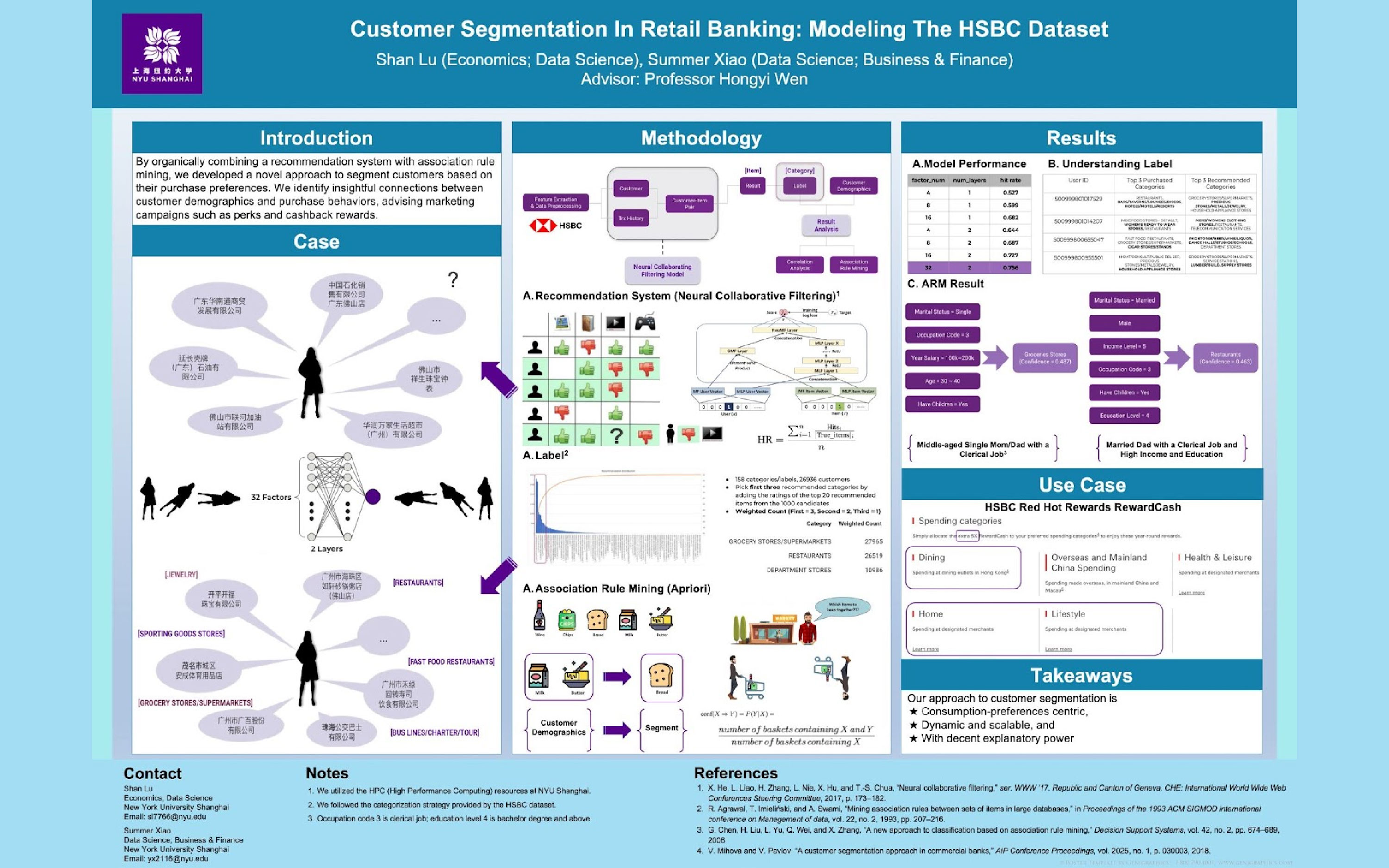
Best Presentation
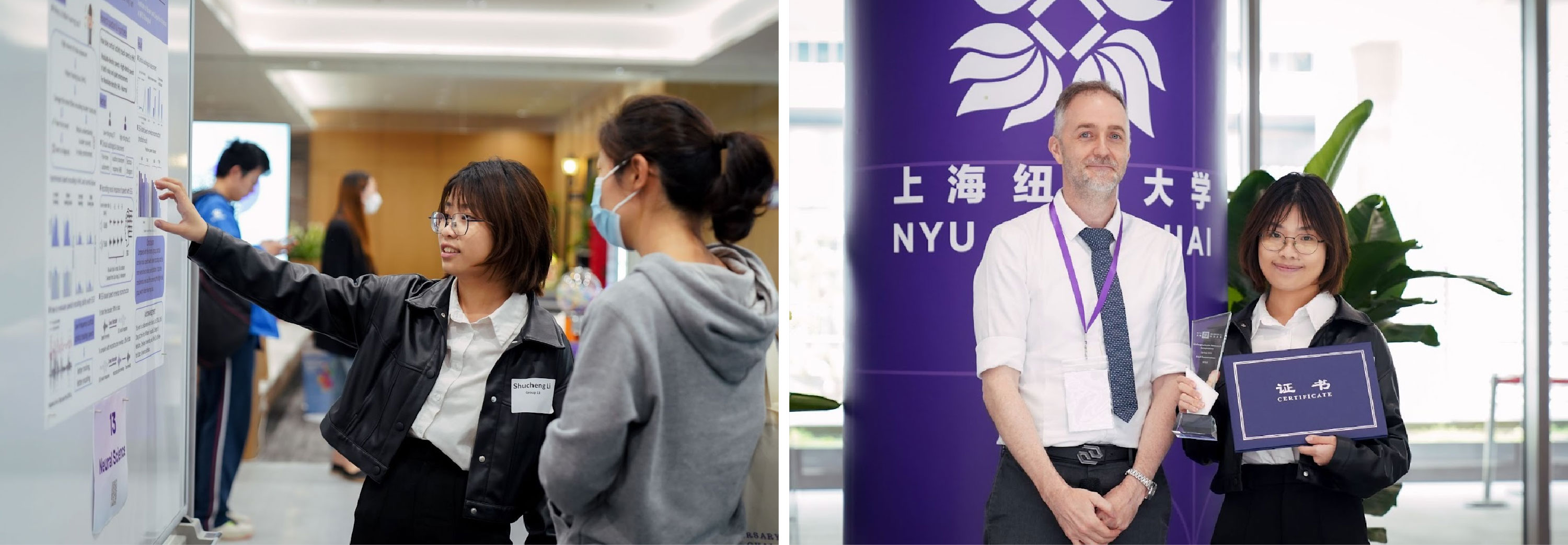
Low-Frequency Cortical Activity Tracking Speech in Hidden Hearing Loss
By: Li Shucheng ’25
Area: Neural Science
Mentors: Associate Professor of Neural and Cognitive Sciences Tian Xing and Lu Yuhan, PhD student from SLANG.
What was the experience working with your mentors?
Professor Tian is a super supportive, warm-hearted, and smart researcher, and our conversations always inspire me to think deeper. Yuhan Lu guided me all the way, carefully and patiently, especially in EEG data analysis.
Why did you choose this topic?
Hidden hearing loss refers to the weakened ability to perceive loud sound due to long-term high-intensity noise exposure, such as with soldiers who have been in war. For example, soldiers with hidden hearing loss may fail to perceive high-volume speech on the field during war. But it is hard to diagnose hidden hearing loss because only the encoding ability of loud sound is weakened, and the perception of the modulate-intensity sound is not influenced.
Did you face any unexpected challenges in your research?
Yes. The EEG data we collected was not high quality, and we didn’t have enough subjects with hidden hearing loss. The next step will be to collect more data and redo our analysis.
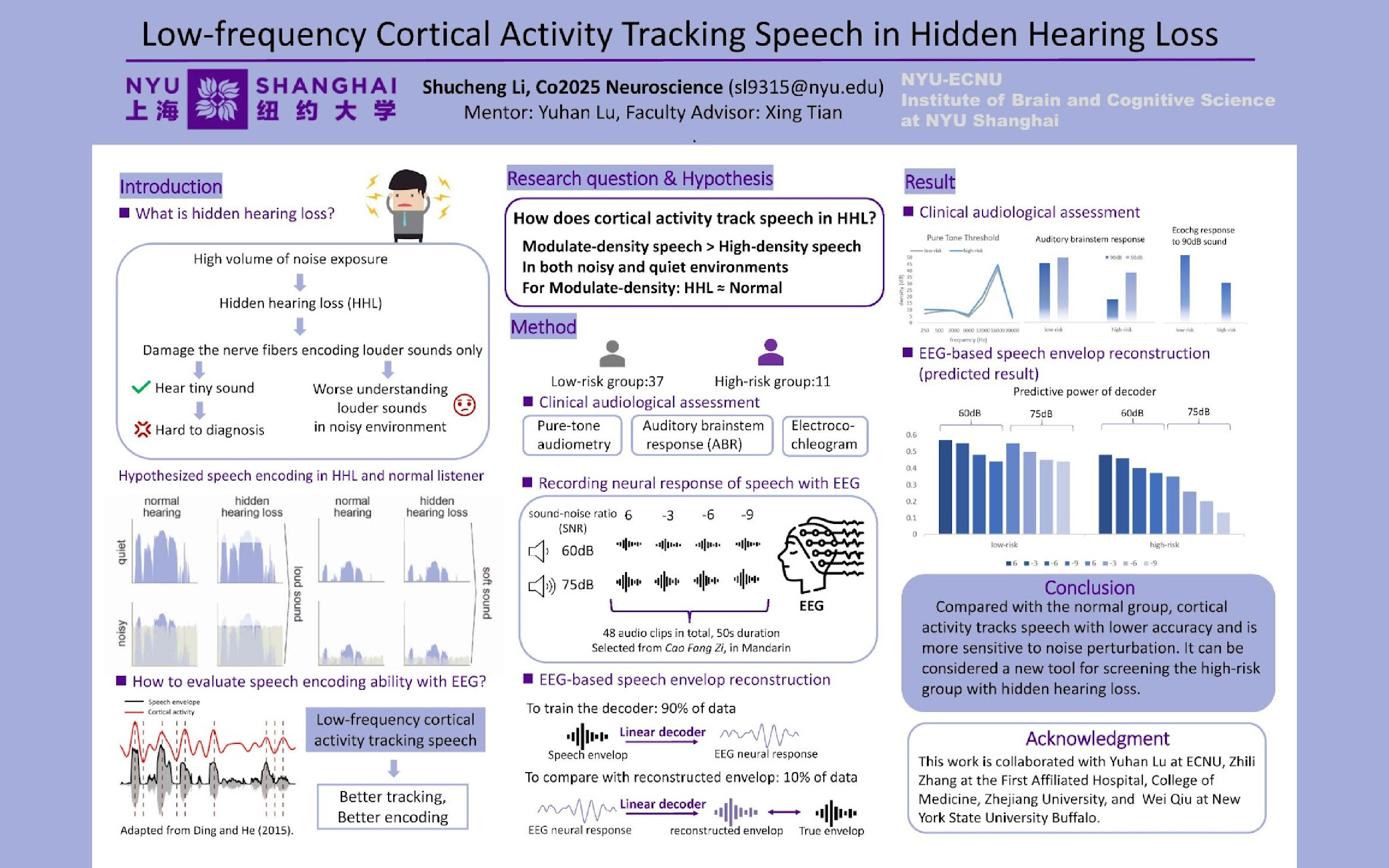
Audience Favorite
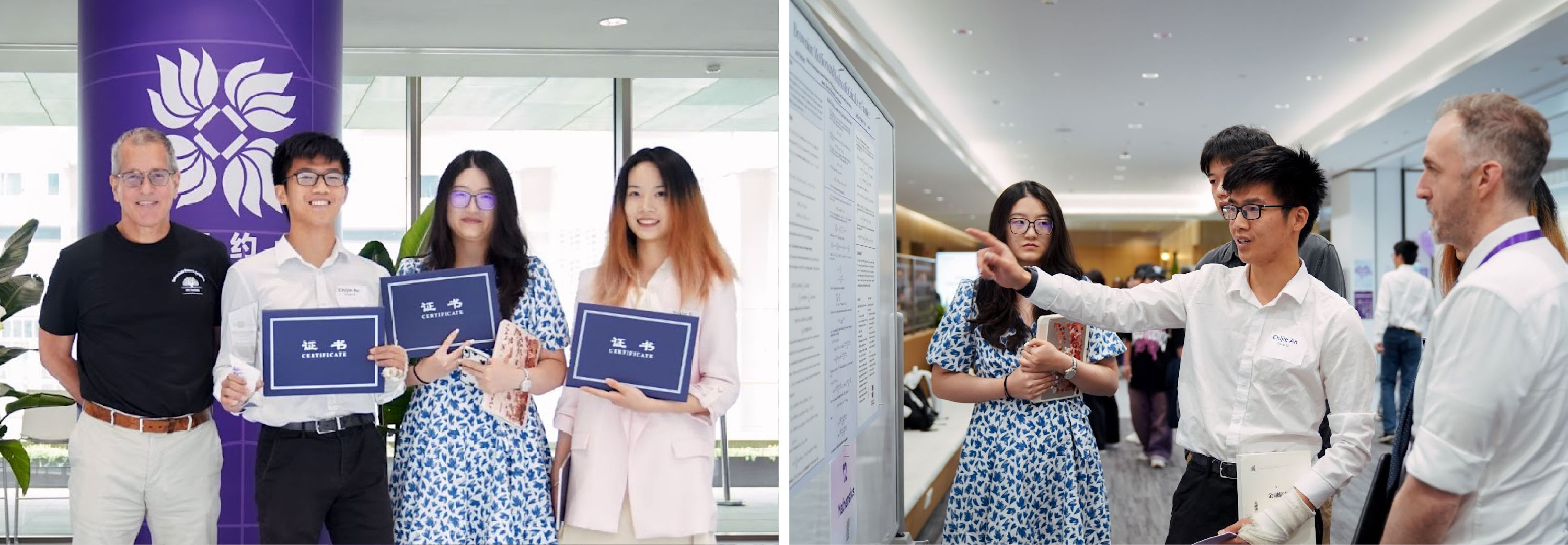
Brownian Motion and Stochastic Calculus in Finance
By: Zheng Jiale ’25 , An Chijie ’25, Ji Yuxin ’25, and Liu Zhou ’23
Area: Mathematics
Mentor: Associate Professor of Mathematics Wu Wei
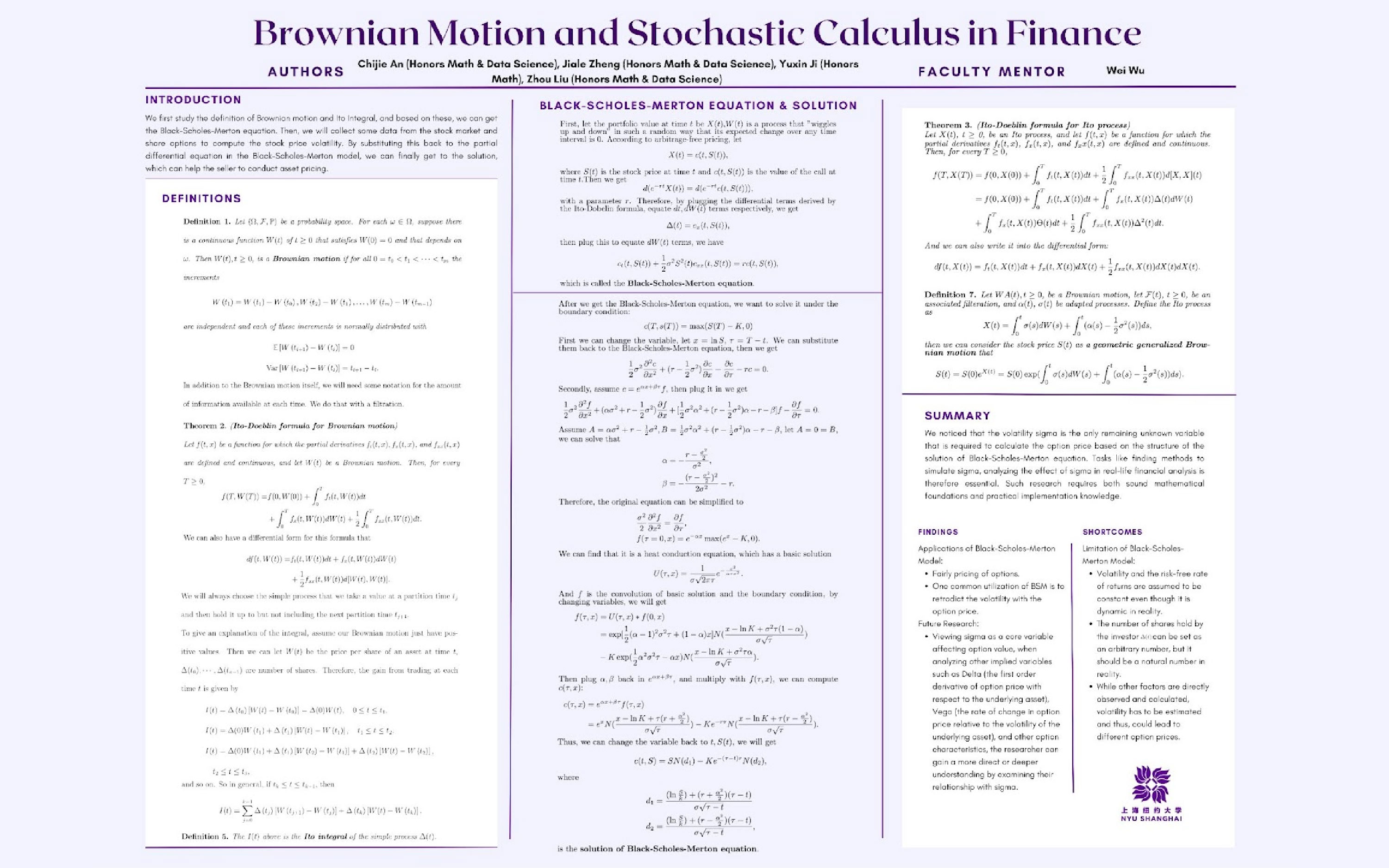
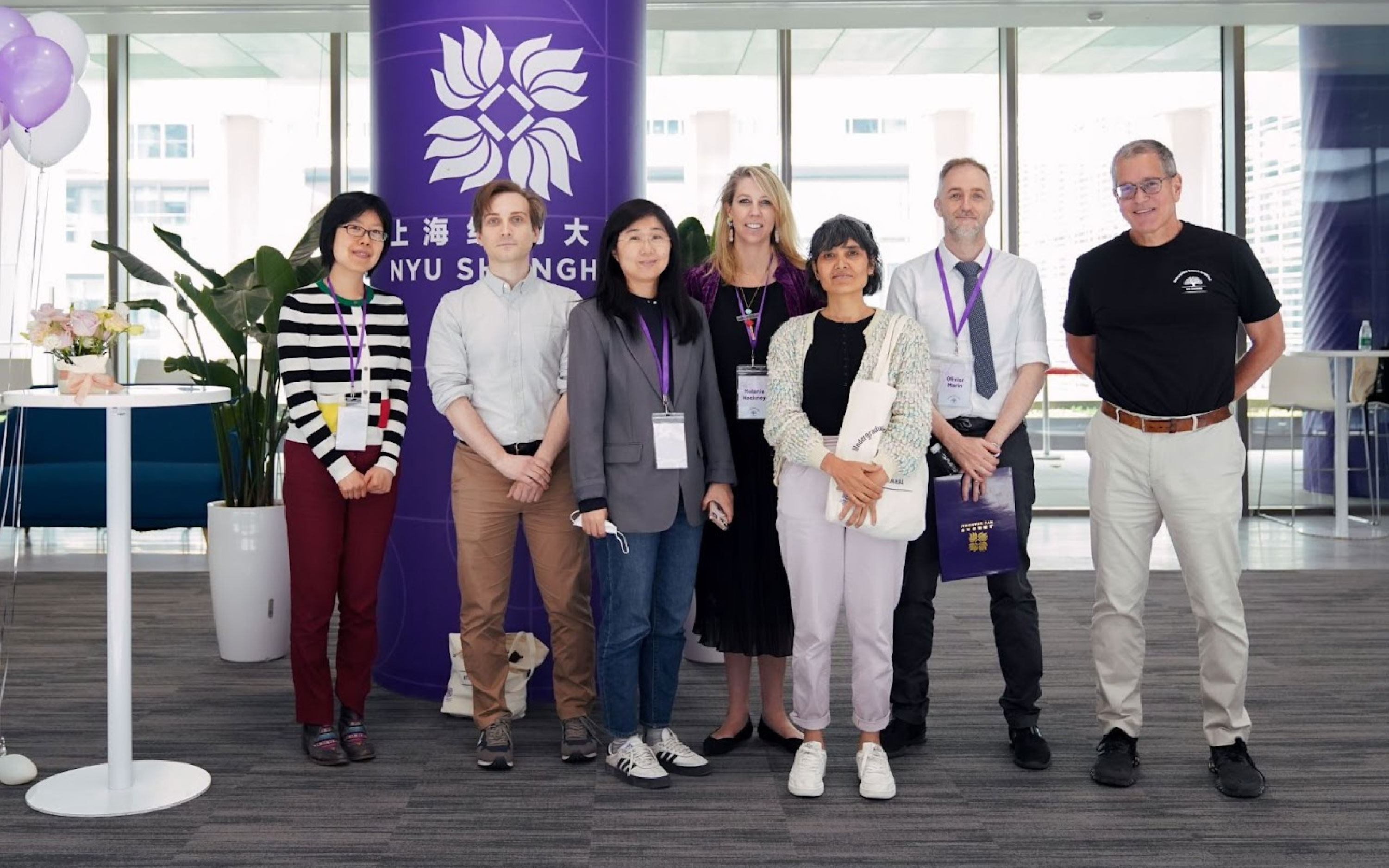
Faculty judges: (left to right) Zhang Linmin, Mathieu Laurière, Christina Wang Dan, Melanie Hackney, Marcela Godoy, Olivier Marin, John Robertson.


